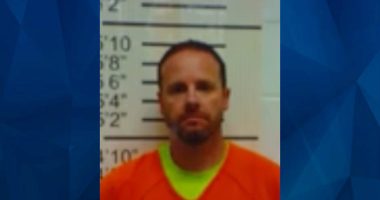
Main: FILE – A person uses an iPhone (AP Photo/Jenny Kane, File). Inset, left to right: Judges Richard Tallman, Consuelo Callahan, and Robert Lasnik of the U.S. Court of Appeals for the Ninth Circuit.
A federal appeals court has ruled that the constitutional right against self-incrimination did not prevent California police from forcing a suspected drug dealer from unlocking his cellphone with a thumbprint.
The U.S. Court of Appeals for the Ninth Circuit ruled against Jeremy Travis Payne Wednesday, throwing out Payne’s constitutional challenges to the admissibility of evidence collected after highway cops forced Payne to unlock his phone. The court said that the ruling in Payne’s case was clear, but that it does not mean that police are entitled to force individuals to unlock electronic devices in all circumstances. Rather, the court said the matter comes down to what kind of thought process would be required for the unlocking, and said the surrounding facts — including whether a person was permitted to choose which finger to use to unlock a phone — could make the difference as to legality.
Payne was convicted of assault with a deadly weapon on a peace officer in 2018, sentenced to three years imprisonment, then released on parole. As a condition of his parole, Payne signed documents agreeing that he would cooperate with various kinds of searches if asked to do so. While on parole, Payne was arrested and charged with possession with intent to distribute fentanyl, fluorofentanyl, and cocaine in 2021. During a traffic stop, California Highway Patrol (CHP) officers forced Payne to unlock his cellphone by using his thumbprint.
Once the phone was unlocked, officers found several videos showing Payne inside a room filled with pills suspected to be fentanyl and a money-counting machine; officers also found a map with dropped pins that led them to the location captured in the video, which was indeed filled with drugs.
Payne raised both Fourth and Fifth Amendment challenges to the officers’ compelled use of his thumbprint. The district court denied Payne’s motion to suppress the evidence on both constitutional grounds. Payne then pleaded guilty and was sentenced to 12 years in prison. Payne appealed the motion to suppress to the Ninth Circuit and Bill Clinton appointee U.S. Circuit Judge Richard C. Tallman penned the opinion for the unanimous three-judge panel. The panel also included U.S. Circuit Judge Consuelo M. Callahan, a George W. Bush appointee, and U.S. District Judge Robert S. Lasnik, also a Clinton appointee, sitting by designation.
Tallman dispensed with the Fourth Amendment claim on the basis that Payne’s status as a parolee subjected him to “a significantly diminished expectation of privacy.” Tallman pointed out that Payne signed a multiple agreements that required him to surrender any device for search without cause. The panel ruled that although Payne’s parole conditions did not specifically not require him to “provide a biometric identifier,” the cellphone unlocking was not a significant enough departure from the conditions to which he agreed to warrant suppressing the evidence.
Tallman said the Fifth Amendment claim rested on whether compelled use of the thumb-unlock feature was “testimonial” in nature — and concluded that it was not. Therefore, the Fifth Amendment did not prohibit the officer’s compelled use of the unlock in Payne’s case.
“Compelled physical acts — i.e., those that require an individual to serve as a ‘donor’ — are not testimonial,” Tallman explained. Tallman likened the unlocking to a blood draw or fingerprinting at booking. Rather than constituting “testimony” for purposes of the Fifth Amendment, those actions “required no cognitive exertion,” and merely “compel[led] an individual to provide law enforcement with access to an immutable physical characteristic,” said the court.
Tallman likened the Payne case to a 2000 U.S. Supreme Court precedent in which the Court said that providing police with a combination to a safe differs from providing them with a key. Because providing a thumb-unlock is more like handing over a key — an action that requires “no mental process” — it does not constitute “testimony” for Fifth Amendment purposes.
The court cautioned, however, against reading its ruling too broadly.
“We would be remiss not to mention that Fifth Amendment questions like this one are highly fact dependent and the line between what is testimonial and what is not is particularly fine,” Tallman wrote. “Our opinion should not be read to extend to all instances where a biometric is used to unlock an electronic device.”
Tallman concluded the self-incrimination analysis by explaining that seemingly minor facts, such as whether a person could choose the finger used to unlock a device, could have significant effect on the legality of the underlying police action.
“Indeed, the outcome on the testimonial prong may have been different had Officer Coddington required Payne to independently select the finger that he placed on the phone,” Tallman offered by way of example.
Counsel for the parties did not immediately respond to request for comment.
Have a tip we should know? [email protected]







